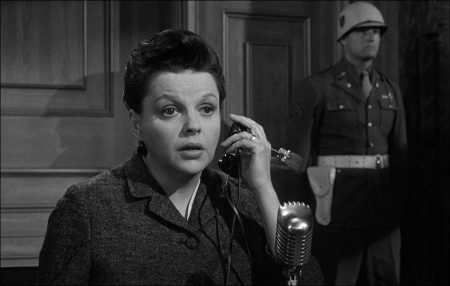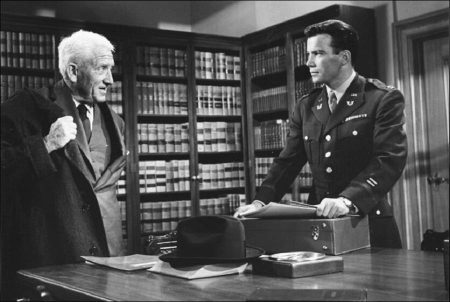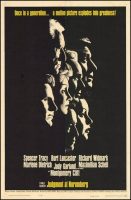Judgment at Nuremberg movie storyline. It has been three years since the most important Nazi leaders had already been tried. This trial is about 4 judges who used their offices to conduct Nazi sterilization and cleansing policies. Retired American judge, Dan Haywood has a daunting task ahead of him. The Cold War is heating up and no one wants any more trials as Germany, and Allied governments, want to forget the past. But is that the right thing to do is the question that the tribunal must decide.
Judgment at Nuremberg is a 1961 American courtroom drama film directed by Stanley Kramer, written by Abby Mann and starring Spencer Tracy, Burt Lancaster, Richard Widmark, Maximilian Schell, Werner Klemperer, Marlene Dietrich, Judy Garland, William Shatner, and Montgomery Clift. Set in Nuremberg, Germany in 1948, the film depicts a fictionalized version of the Judges’ Trial of 1947, one of the 12 U.S. military tribunals during the Subsequent Nuremberg trials.
The film centers on a military tribunal led by Chief Trial Judge Dan Haywood (Tracy), before which four German judges and prosecutors (as compared to 16 defendants in the actual Judges’ Trial) stand accused of crimes against humanity for their involvement in atrocities committed under the Nazi regime. The film deals with non-combatant war crimes against a civilian population, the Holocaust, and examines the post-World War II geopolitical complexity of the actual Nuremberg Trials.
An earlier version of the story was broadcast as a television episode of Playhouse 90. Schell and Klemperer played the same roles in both productions. In 2013, Judgment at Nuremberg was selected for preservation in the United States National Film Registry by the Library of Congress as being “culturally, historically, or aesthetically significant”.

About the Production
The film’s events relate principally to actions committed by the German state against its own racial, social, religious, and eugenic groupings within its borders “in the name of the law” (from the prosecution’s opening statement in the film), from the time of Hitler’s rise to power in 1933. The plot development and thematic treatment question the legitimacy of the social, political, and alleged legal foundations of these actions.
The real Judges’ Trial focused on 16 judges and prosecutors who served before and during the Nazi regime in Germany, and who embraced and enforced laws—passively, actively, or both—that led to judicial acts of compulsory sexual sterilization and to the imprisonment and execution of people for their religions, racial or ethnic identities, political beliefs, and physical handicaps or disabilities.
A key thread in the film’s plot involves a “race defilement” trial known as the Feldenstein case. In this fictionalized case, based on the real life Katzenberger Trial, an elderly Jewish man had been tried for having a “relationship” (sexual acts) with an Aryan (German) 16-year-old girl, an act that had been legally defined as a crime under the Nuremberg Laws, which had been enacted by the German Reichstag. Under these laws, the man was found guilty and was put to death in 1942. Using this and other examples, the movie explores individual conscience, collective guilt, and behavior during a time of widespread societal immorality.
The film is notable for its use of courtroom drama to illuminate individual perfidy and moral compromise in times of violent political upheaval; it was the first mainstream drama film not to shy from showing actual footage filmed by American and British soldiers after the liberation of the Nazi concentration camps. Shown in court by prosecuting attorney Colonel Tad Lawson (Richard Widmark), the scenes of huge piles of naked corpses laid out in rows and bulldozed into large pits were considered exceptionally graphic for a mainstream film of the time.
Judgment at Nuremberg (1961)
Directed by: Stanley Kramer
Starring: Spencer Tracy, Burt Lancaster, Richard Widmark, Marlene Dietrich, Judy Garland, Maximilian Schell, William Shatner, Alan Baxter, Montgomery Clift, Virginia Christine
Screenplay by: Abby Mann
Production Design by: Rudolph Sternad
Cinematography by: Ernest Laszlo
Film Editing by: Frederic Knudtson
Costume Design by: Joe King
Set Decoration by: George Milo
Music by: Ernest Gold
MPAA Rating: None.
Distributed by: United Artists
Release Date: December 19, 1961 (USA)
Visits: 217

